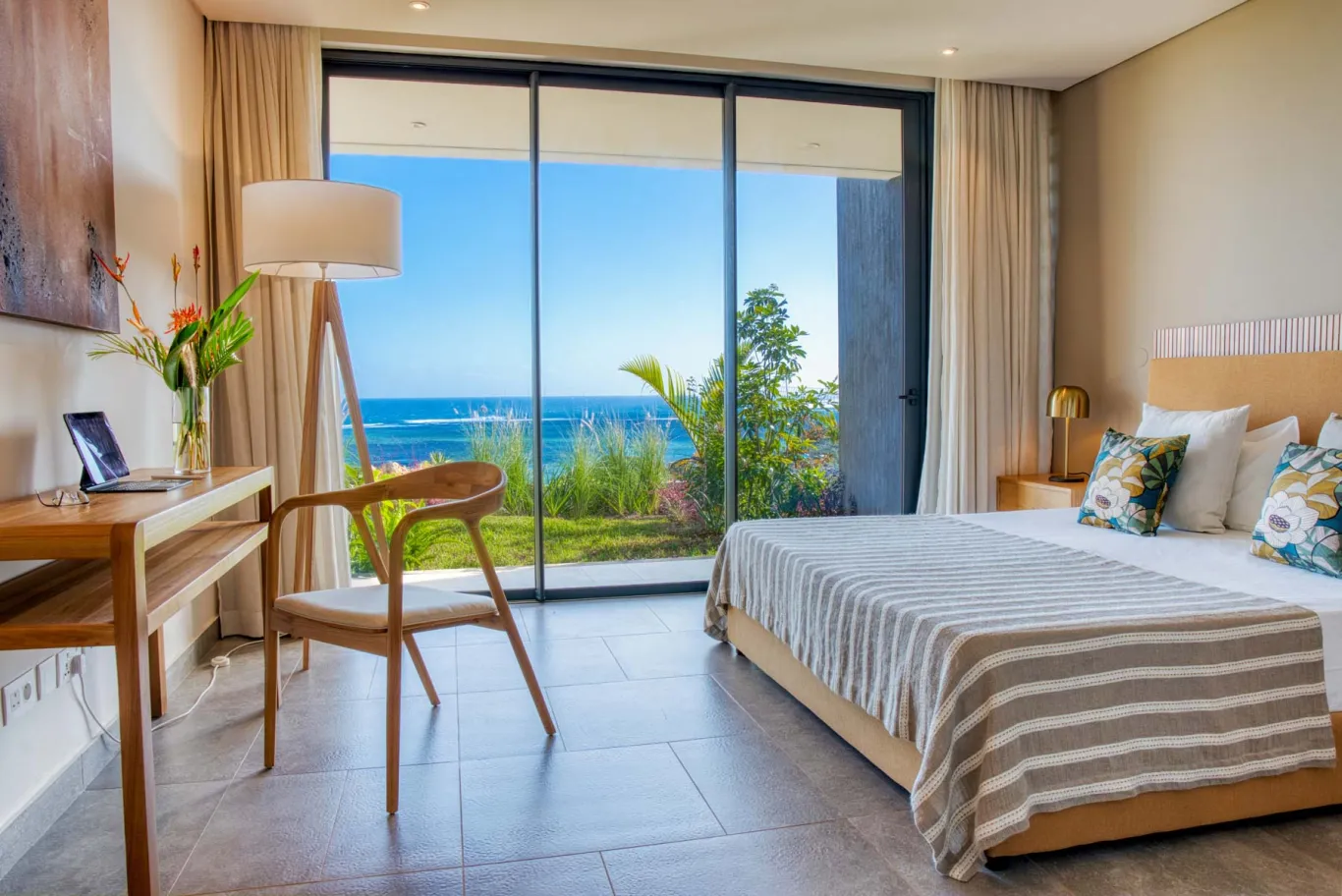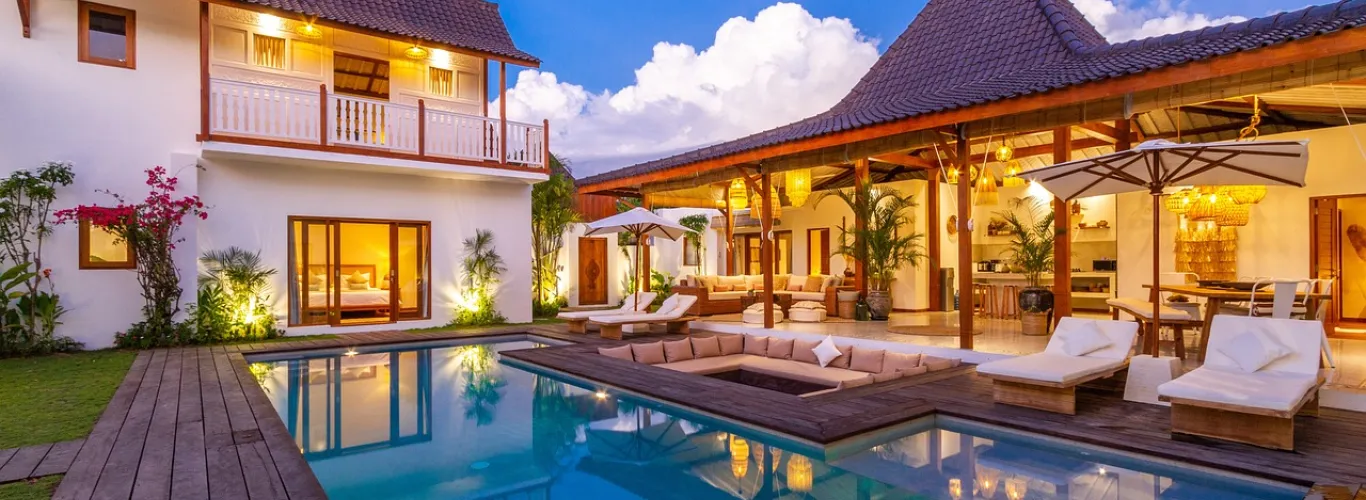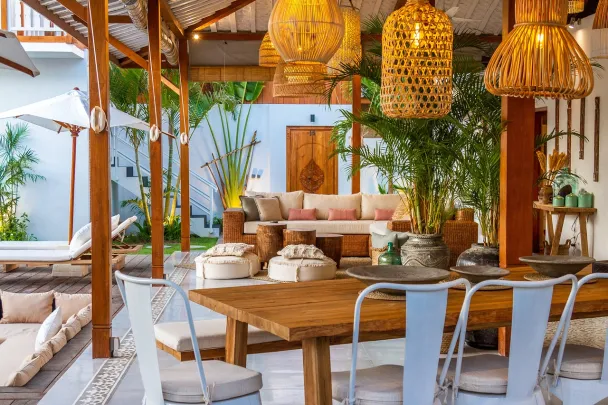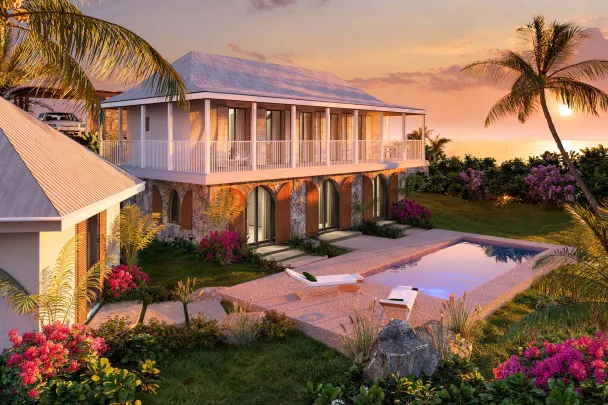The Mauritian real estate market attracts numerous buyers every year, drawn by the island’s exceptional lifestyle and the investment opportunities it offers.
With its white sandy beaches, tropical climate, and favorable tax system, Mauritius has everything to appeal to international investors—whether they are looking for a holiday home, a pied-à-terre for their stays, or a property with strong rental income potential.
Yet, despite this appeal, many buyers fall into the same traps. Due to lack of information, insufficient preparation, or simply being swept away by the charm of a property, some underestimate their budget, overlook administrative procedures, or choose a less strategic location.
The result: a project that could have been a great success can quickly become a source of complications, or even financial losses.

Discover the most common mistakes when buying property in Mauritius. We share practical tips to secure your investment and make the most of this little piece of paradise, while enjoying a comfortable rental income.
Everything you need to know about real estate in Mauritius before buying
- Identify the mistakes to avoid when purchasing property in Mauritius to protect your investment.
- Analyze the real estate market trends for foreign buyers, including recent developments and future outlooks.
- Learn how to generate passive income through short- or long-term rentals and maximize the profitability of your properties.
- Get practical advice on choosing the best locations, optimizing property management, and staying compliant with local regulations.
Mistakes to avoid when buying property in Mauritius
Neglecting your budget and additional costs
One of the most common mistakes is focusing solely on the listed purchase price without considering the additional costs. Many buyers realize too late the importance of extra expenses, such as notary and registration fees, management and condominium charges (unavoidable in secure residences in Mauritius), property transfer fees, maintenance costs (pool, garden, housekeeping), home insurance, and potential staff expenses.
Administrative fees may also apply, such as obtaining authorization from the Economic Development Board (EDB) for foreign buyers.
Practical tip: To avoid any unpleasant surprises, create an overall budget before even visiting a property. A real estate professional can help you anticipate all these costs and build a realistic financial plan, taking into account not only the purchase price but also the long-term maintenance of the property.
Ignoring legal and administrative obligations
Buying property in Mauritius is not the same as in Europe or elsewhere: local legislation is strict, especially for foreign buyers. Certain approvals are mandatory, such as authorization from the Economic Development Board (EDB), which ensures that the acquisition complies with legal requirements. In addition, a complete administrative file is required, including a valid passport, proof of residence, bank references, and most importantly, proof of the source of funds, to comply with anti-money laundering regulations.
Many buyers, due to lack of preparation, overlook these steps or sign too quickly without verifying the property’s compliance and the terms of the sales contract. These oversights can cause delays in the process or even legal complications later on.
Practical tip: Don’t leave anything to chance. Work with a notary and an experienced real estate agent familiar with the Mauritian market. Their role is to verify each step, ensure all documents are compliant, and streamline the acquisition process with the local authorities.
Choosing a poor location
A property may look perfect on paper or during a quick visit, but its location remains the key factor for a successful investment. In Mauritius, some buyers prioritize the view or the aesthetics of a property without analyzing its surroundings: too far from amenities, in an underdeveloped area, or exposed to nuisances such as traffic, noise, or specific weather conditions.
A poor location choice can not only limit rental profitability but also complicate future resale. On the other hand, a villa or apartment in a vibrant area, close to beaches, shops, and infrastructure, will always retain strong appeal.
Practical Tip: Take the time to visit multiple locations and compare them. Research development projects (roads, schools, shopping centers) that could increase the area’s value in the medium term. In Mauritius, certain regions like the west coast or the south are particularly attractive due to their quality of life and potential for property appreciation.
Failing to analyze condominium fees
In Mauritius, most residences aimed at foreign buyers are located in secure complexes with shared services (security, landscaping, pool, clubhouse, etc.). These amenities naturally come at a cost in the form of condominium fees.
Many buyers, attracted by the comfort offered, forget to assess these recurring charges before purchasing. If not properly anticipated, they can represent a significant part of the annual budget and become a source of financial stress.
Practical Tip: Always request a detailed statement of fees before signing. Analyze the included services, compare with other residences, and ensure these costs align with your goals—whether it’s a holiday home, rental investment, or a full-time residence.
Not planning for resale and profitability
A property purchase should not be viewed solely as a “love at first sight” purchase, but also as a long-term investment. Many buyers neglect the questions of resale potential or rental profitability when purchasing, and end up with a property that is hard to sell or poorly profitable in the rental market.
Demand varies depending on the area and type of property. Villas with sea views or residences in sought-after neighborhoods generally retain high value and maintain strong occupancy rates for both short-term and long-term rentals.
Practical Tip: Before buying, research local market trends. Analyze rental demand, prices in the area, and potential for appreciation. This will allow you to choose a property that not only appeals to you but also represents a solid investment.
Buying property in Mauritius is an exciting project, but it should not be taken lightly. The most common mistakes—overlooking additional costs, underestimating administrative procedures, choosing a poor location, ignoring condominium fees, or neglecting resale potential—can turn a promising opportunity into a frustrating experience.
By taking the time to get well-informed, surrounding yourself with local experts, and evaluating your project from all angles (budget, location, investment strategy), you will maximize your chances of success.
Mauritius is undeniably a prime destination for property investment, whether to enjoy its lifestyle or to build a profitable real estate portfolio.
Evolution and outlook of the real estate market in Mauritius
In the first part of this article, we explored the most common mistakes to avoid when buying property in Mauritius. You now know how to approach your project with confidence and secure every step of the acquisition process.
To go further and invest wisely, it is essential to understand the context of the Mauritian real estate market, its recent developments, and the trends shaping the coming years.
Let’s take a closer look at the evolution of the real estate market in Mauritius and the outlook to better identify the opportunities available to foreign investors.
Opening the market to foreign buyers: A winning strategy
For several years, Mauritius has established itself as a sought-after destination for international investors, thanks to its exceptional lifestyle and favorable tax system. To attract foreign buyers, various property schemes have been introduced:
- IRS (Integrated Resort Scheme): luxury villas in complexes with exclusive services (spa, golf, concierge, etc.).
- RES (Real Estate Scheme): smaller-scale luxury residential projects.
- PDS (Property Development Scheme): modern properties, often with eco-friendly infrastructure and premium services.
- Smart City Scheme: smart cities combining housing, offices, and commercial spaces in a sustainable and connected environment.
These initiatives have created a structured and attractive real estate market capable of meeting the expectations of international investors while ensuring project quality and security.
Key figures on the real estate market for foreign investors
The Mauritian real estate market has experienced steady growth since opening to foreign investors, with accelerated development, particularly since 2020:
- MUR 156.6 billion: total amount invested by non-citizen buyers
- 5,396 luxury residences sold to foreign buyers
- 64% of buyers come from France (42%) and South Africa (22%)
- Average PDS property price: ranges from USD 500,000 to 1.5 million, depending on location and offered amenities
Note: Purchasing a property valued at USD 375,000 or more automatically grants a permanent residence permit, a major advantage for those looking to settle long-term in Mauritius.
Trends and Projections
The Mauritian real estate market continues to grow and adapt to the expectations of international investors. Here are the key trends emerging for the coming years:
Strong demand for luxury villas with sea views
Properties offering an exclusive lifestyle remain highly sought after. Areas such as Grand Baie, Tamarin/Black River, and the southwest with villages like Baie du Cap and Bel Ombre are particularly popular among investors seeking high-end villas.
Development of Smart Cities
These modern urban hubs are increasingly appealing to international buyers, thanks to their premium lifestyle and innovative infrastructure.
Rising rental yields
Demand for long-term rentals, driven by expatriates and remote workers, continues to grow. Investors can expect net returns of 4% to 6%, depending on the location and type of property.
Consistently attractive taxation
Mauritius maintains a favorable tax environment: no property tax, no housing tax, and no capital gains tax on real estate sales, which strengthens its appeal compared to other international destinations.
Generating income through property rentals in Mauritius
After exploring the common mistakes to avoid and analyzing the evolution of the Mauritian real estate market, it’s time to look at one of the main reasons to invest in Mauritius: income from seasonal rentals. The island attracts both tourists and expatriates, offering opportunities for short- and long-term rentals to suit different investor profiles.
Tourist rentals: Maximizing short-term income
Seasonal rentals are especially popular in Mauritius, thanks to the steady flow of tourists and the island’s appeal with its beaches, tropical climate, and high-quality infrastructure.
Advantages:
- Higher nightly rates, ranging from €150 to €500 for high-end properties depending on location and services
- Strong demand during the high season (November to April), with occupancy rates reaching 70–80%
- Opportunity to optimize income by entrusting the property to a reliable rental manager and concierge service
Regulations:
To rent short-term, it is mandatory to obtain a holiday rental license issued by the Mauritius Tourism Authority (MTA). This authorization ensures the property meets safety and quality standards. In some residences, rental management through the developer is offered—or even required.
Long-term rentals: Stability and steady income
With the growing number of expatriates and international professionals, long-term rentals offer a secure and more stable option.
Advantages:
- Steady and predictable monthly income
- Less day-to-day management and tenant turnover—especially if paired with a concierge service
- Option to rent to companies for their expatriate employees
Regulations:
Non-Mauritian owners can rent their property long-term without particular restrictions, but it is strongly recommended to formalize the arrangement through a detailed written contract specifying the obligations of both parties.
Rental yield: Key factors
Rental returns in Mauritius depend on several elements:
- Location: the north, the west with Flic-en-Flac, Tamarin and Rivière Noire, and the southwest around Le Morne all offer strong rental demand.
- Type of property: luxury villas and apartments in secured residences appeal to both tourists and expatriates.
- Amenities and services: a swimming pool, 24/7 security, access to a golf course or private beach all increase rental potential.
On average, rental yields are estimated at 4–7% net per year for short-term rentals and 3–5% net per year for long-term rentals.
Property Management in Mauritius
To simplify the process, many investors rely on specialized management companies:
- Standard management: rent collection and administrative tasks (fees 5–10% of annual rental income).
- Full management: maintenance, repairs, check-ins/check-outs (fees up to 20%).
- Premium services: concierge, gardening, housekeeping tailored to the property.
Professional management helps optimize rental yield while reducing the owner’s workload.
Taxation for Non-Residents
Mauritius offers an attractive tax framework for investors:
- Tax rate: a flat 15% on net rental income, after deducting eligible expenses (management fees, loan interest, property depreciation).
- Double tax treaties: rental income earned in Mauritius is generally not taxed again in the investor’s country of residence, particularly for French investors.
Investing in Domaine d'Anbalaba
Investing in real estate in Mauritius offers a unique opportunity to generate passive income while enjoying an exceptional lifestyle. Whether through short-term or long-term rentals, choosing the right location, optimizing property management, and understanding the specifics of the local market are key to maximizing your returns.
Domaine d’Anbalaba, located in the southwest of the island just steps from Le Morne, offers premium property management, high-end concierge services, and attractive rental yields. Investing in this sought-after area, set in an exceptional natural environment, allows you to combine financial performance with quality of life.


